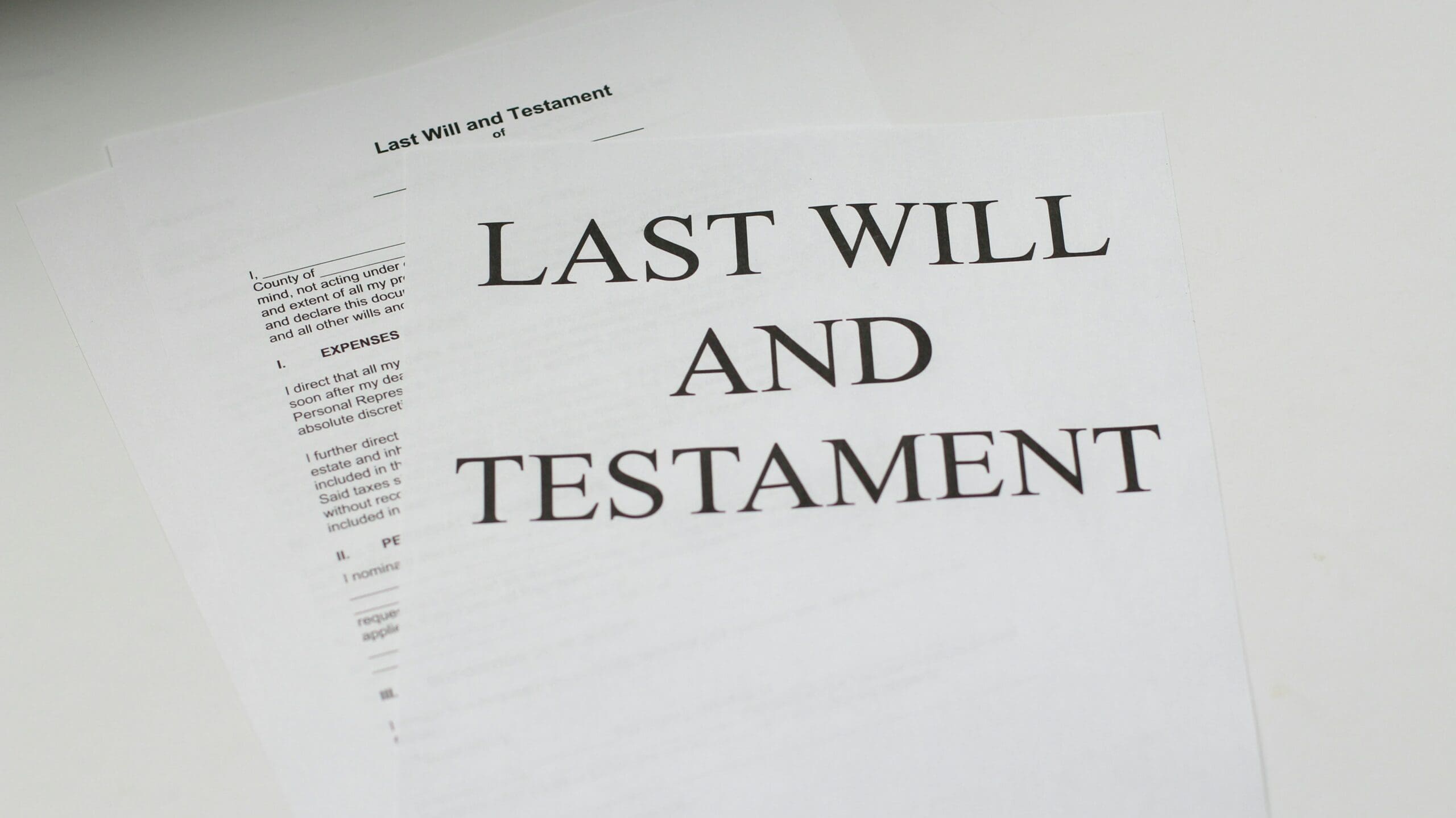Probate refers to process by which an Executor named in a Will is given the legal right to deal with the assets and liabilities in the estate of a deceased person.
A grant of Representation is the umbrella term referring to either Probate or letters of administration. Letters of administration are issued instead of Probate when a deceased person did not have a valid Will.
Probate laws differ in every state. In Victoria, the Administration and Probate Act 1958 is the relevant legislation governing Probate.
What is Probate?
Probate is a grant approved by the Court which enables an Executor to administer the estate of a deceased person and distribute the assets to beneficiaries.
A grant of Probate issued by the Supreme Court confirms that the Will of the deceased person is valid, and the Executors named have the authority to access and deal with the deceased’s estate.
The Probate Process
Before applying for Probate, an Executor will need to have the following:
- The death certificate of the deceased person; and
- The original Will.
Once the Executor has these documents, they can start applying for Probate, or find a reputable lawyer to apply for Probate on their behalf.
The process for applying for Probate is as follows:
- Lodge an advertisement with the Supreme Court advertising the intention to apply for Probate.
- Prepare a list of assets and liabilities of the estate.
- 14 days after the advertisement has been lodged, the Executor can apply for Probate to do so, they need to file:
- An Affidavit of Executor.
- An inventory of Assets and Liabilities; and
- The death certificate.
- The Executor will then need to post the original Will to the Supreme Court; and
- Obtain a grant of Probate or file additional supporting material as requested by the Court.
Sometimes the Court will request further information, for example an affidavit from the deceased’s treating physician. In these cases, the supporting material will need to be provided before Probate can be granted.
The process can take several weeks to complete.
After the Court has received the original Will, they may take a couple of weeks to review the application.
To ensure a smooth probate process, consider seeking professional help from our experienced probate lawyers. Learn more about our Probate services.
When Probate is Required
- Most banks require a certified copy of a grant of Probate to release funds to the Executor if the amount held in the account exceeds $50,000.
- Probate is also required to transfer any real property into the Executor’s name prior to transferring the property to beneficiaries.
- A grant of Probate may also be required for superannuation purposes if the superannuation funds have been nominated to form part of the estate.
Probate provides evidence that the Executor is authorised to deal with the assets in the estate.
Probate is not required if the estate is small, and a grant of Probate is not required to access funds held in banks or to transfer any property.
Probate may also not be required if all assets are held jointly for example if a home is owned as joint tenants with another person, that property will automatically pass to the surviving owner. The same rule applies to joint bank accounts.
Challenges in the Probate Process
There are several challenges that can arise during the Probate process including the following:
- The Will is missing, or the Executors cannot find it.
As the original Will is required for a Probate application, it is important that the Executors locate the Will.
- Usually, a Will can be found with the deceased’s other documents, perhaps in a safe or lock box.
- The Will may also be in the possession of the solicitors who drafted the Will or the Supreme Court.
Where the original Will cannot be found and only a photocopy is available, the Court may accept the photocopy version, however the process for Probate will be more complicated.
- Where there are multiple Executors appointed, not all want to apply for Probate
All of the Executors appointed do not need to apply for Probate.
If an Executor does not wish to be involved in the application process, they can file a leave reserved application which allows them to step aside from the Probate process, but they still retain their rights as an Executor.
- All Executors are either unable or unwilling to apply for Probate
If an Executor refuses to take on the responsibility of being an Executor, they will be considered unwilling to act.
If any Executor has died, lost mental capacity or lost physical capacity to act as the Executor, they will be deemed unable to act.
If there are substitute Executors named in the Will, they can step in to fulfil the role of Executor if the circumstances under which they are allowed to have been fulfilled.
If the named Executors and substitute Executors cannot or will not act, then an Application for Letters of Administration will need to be made.
- The deceased’s Testamentary capacity is in question
The deceased’s testamentary capacity may be called into question for a number of reasons, for example where the deceased was suffering from a condition that affected or might have affected their capacity at the time the Will was made.
The Court may then request that an Affidavit of Testamentary Capacity be filed by the deceased’s treating practitioner to establish whether the deceased had testamentary capacity at the time of their death.
- The Will is invalid
If the Will is deemed invalid, for example if it has not been signed by the deceased, then Letters of Administration will need to be applied for instead.

Probate vs Letters of Administration
A Grant of Probate can be obtained where a Will maker has left a valid Will.
A Grant of Letters of Administration can be obtained by someone who is not named as an Executor in the Will either because the deceased did not make a Will, the Will is invalid or because none of the name Executors can act.
A Grant of Letters of Administration allows the administrator to act in the same way an Executor would after a Grant of Probate.
Usually, applying for a Grant of Letters of Administration is more costly and time consuming than applying for a Grant of Probate because the Court will require more evidence as to why someone should be appointed as administrator.
Seeking Legal Assistance
Executors should seek legal assistance from experienced probate lawyers to ensure the application is done correctly and to navigate any challenges that may arise.
An Executor should also seek legal advice before distributing assets to beneficiaries.
Our team at Matthies Lawyers can guide you through the probate process. Learn more about our Probate services.
FAQs on Probate
What does an Executor do?
Executors and administrators must pay off debts, funeral expenses and legal fees associated with the estate out of the estate funds. They then need to distribute the assets in accordance with the instructions in the Will.
How much does applying for a Grant of Probate cost?
There are three parts to the cost of applying for Probate. There are Supreme Court filing fees, the advertising fees and solicitor’s fees.
The cost depends on the size of the estate as the fees are listed on a scale. The larger the estate, the more costs involved.
Do Executors get paid for the work?
Executors are entitled to be reimbursed for the expenses incurred in administering the estate, otherwise work done by an Executor is generally for free unless a clause is inserted in the Will stating otherwise.
Often clauses are included in Wills entitling an Executor to charge their professional rates if they are, for example, an accountant or a solicitor.
Further Resources
Obtaining Probate for a non-existent or informal Will
Administration and Probate Act 1958
—
Kate Scolyer – Solicitor– Matthies Lawyers
Should you wish to obtain advice regarding your estate planning matters, please contact Matthies Lawyers for an obligation-free consultation or call +61 3 8692 2517 today.
Disclaimer: This article contains general information only and is not intended to be a substitute for obtaining legal advice

